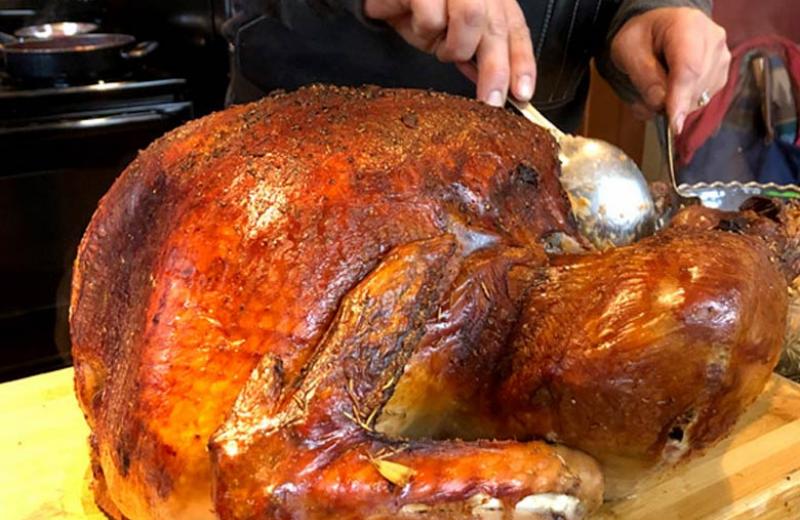Turkey and the holidays go together like… well, turkey and the holidays! Turkey is a holiday staple, but unless you take proper care, your special day can turn sour.
Raw turkey is an ideal home for many bacteria, including salmonella and campylobacter. If not cooked properly, these microscopic troublemakers can run wild in your digestive system, causing nausea, fever, stomach pain, and diarrhea.
But don’t worry, as long as you take proper care preparing and cooking of your turkey, you’ll be sure to have a safe and delicious holiday meal.
Seyoum Gebeyehu, an Environmental Health Officer with Northern Health, says, “Follow these four steps and you and your family will be all right!”
1. Store and thaw your turkey properly
- Make sure frozen turkey stays frozen and fresh turkey stays refrigerated. Cook fresh turkey within three days of purchase.
- Defrost frozen turkey in the refrigerator or under cold running water. Do not defrost on the counter as the outer part of the turkey will spend too long in the danger zone before the center thaws. The danger zone is between 4 to 60 degrees Celsius or 40 to 140 degrees Fahrenheit. Between these temperatures, bacteria multiply very quickly.
2. Cook properly
- Don’t wash your turkey. This can cause bacteria found on the turkey to splash onto nearby surfaces
- Use a meat thermometer to make sure the temperature in the thickest part of the turkey breast or thigh is at least 82 degrees Celsius (180 degrees Fahrenheit).
- Never eat raw or undercooked turkey.
3. Safely enjoy stuffing
- Take extra care with stuffing. The moisture provides an ideal environment for bacteria growth.
- Cook stuffing to a minimum internal temperature of 74 degrees Celsius (165 degrees Fahrenheit).
- The safest way to cook stuffing is in a separate pan; however, if you’re cooking stuffing in the turkey, stuff the turkey loosely just before cooking and remove the stuffing immediately after cooking.
4. Be smart with leftovers
- Make sure that leftover turkey is refrigerated or frozen within two hours of cooking.
- Use refrigerated leftovers within three days. Freezing is a great option if you need it to last longer!
This article was first published in the winter edition of Northern Health: Health and Wellness in the North.














Comments